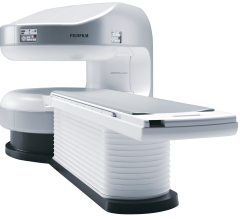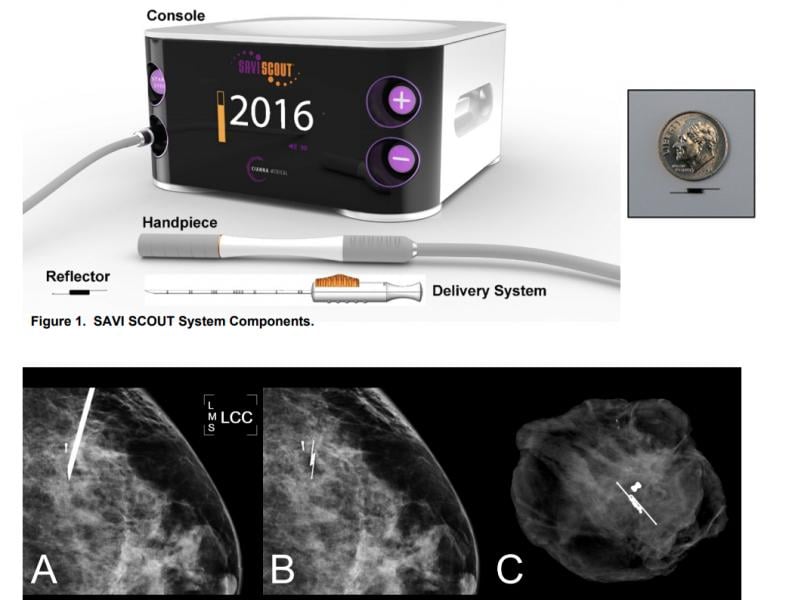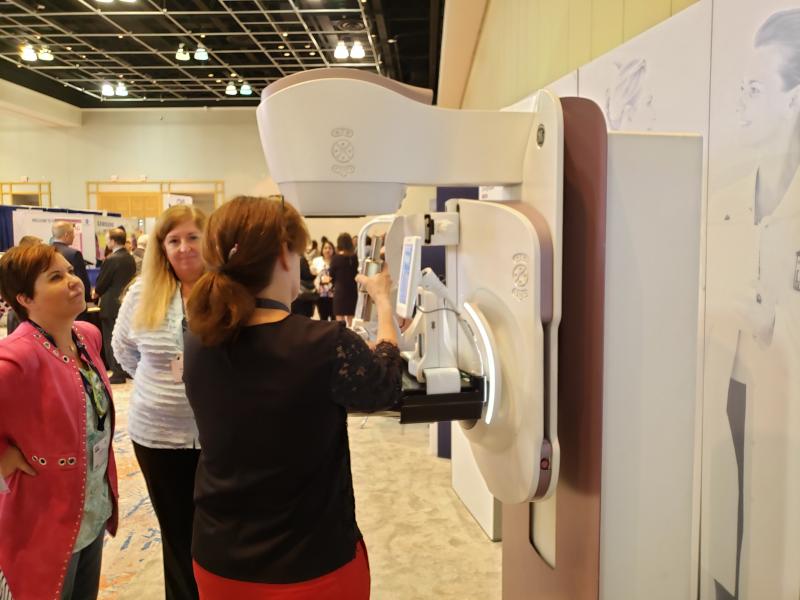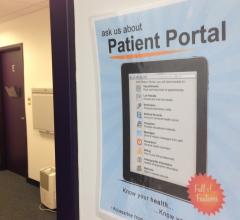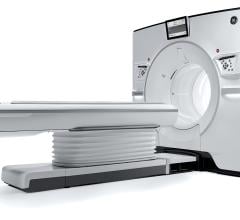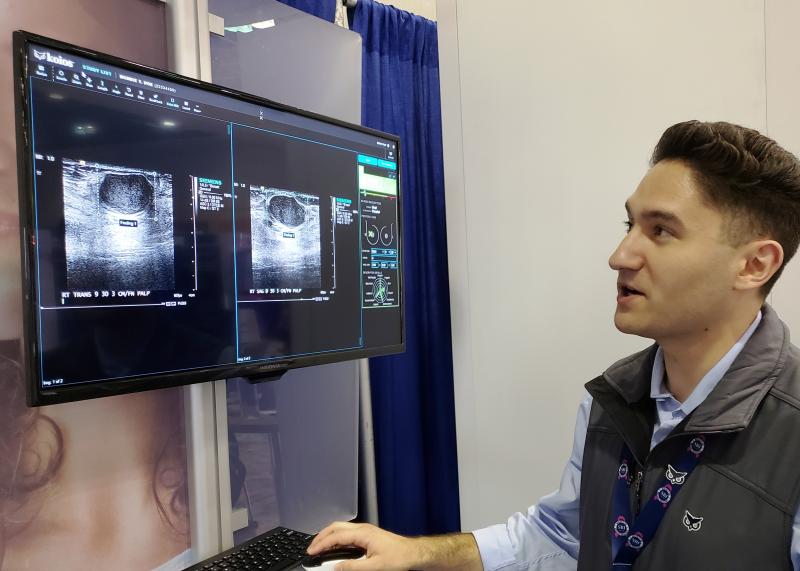Samsung announced that its new image post-processing engine (IPE), S-Vue 3.02, recently received U.S. Food and Drug Administration (FDA) clearance. The technology employs an advanced noise-reduction algorithm that allows devices to produce the same high-quality image using a fraction of the radiation in pediatric patients. Image evaluations on devices using S-Vue showed they reduced X-ray dose up to 45 percent for pediatric abdomen exams,* 15.5 percent for pediatric chest exams, and up to 27 percent for pediatric skull exams as compared with the previous IPE on the same X-ray systems.
April 24, 2019 — Imaging Technology News (ITN) was recently named the 2019 Jesse H. Neal Award winner in the Best ...
Konica Minolta Healthcare Americas Inc., announced its KDR Advanced U-Arm and KDR Primary Digital Radiography System have been certified in California to withstand earthquakes, as part of the state’s Hospital Facilities Seismic Safety Act. The certification provided by the Office of Statewide Health Planning and Development (OSHPD) was awarded after both systems underwent and passed rigorous testing, including a shake test. With the OSHPD Seismic Certification, the KDR AU and KDR Primary can now be installed in any facility that requires this type of certification.Konica Minolta Healthcare Americas Inc., announced its KDR Advanced U-Arm and KDR Primary Digital Radiography System have been certified in California to withstand earthquakes, as part of the state’s Hospital Facilities Seismic Safety Act. The certification provided by the Office of Statewide Health Planning and Development (OSHPD) was awarded after both systems underwent and passed rigorous testing, including a shake test. With the OSHPD Seismic Certification, the KDR AU and KDR Primary can now be installed in any facility that requires this type of certification.
Fujifilm’s APERTO Lucent is a 0.4T mid-field, open MRI system addressing today’s capability and image quality needs ...
Accuray announced the launch of its Synchrony motion tracking and correction technology to be used with the Radixact System. This new feature adds intrafraction motion synchronization capabilities to the Radixact System, enabling real-time tracking, visualization and correction for tumor motion during treatment, with the goal of improving dose accuracy and treatment times compared to conventional radiation therapy systems. The Radixact System with Synchrony will be unveiled at the European Society for Radiotherapy & Oncology (ESTRO) meeting, April 26-30 in Milan, Italy.
Wires have traditionally been placed prior to lumpectomy to mark cancerous tissues in the breast. Wire-free localizers ...

SPONSORED CONTENT — Fujifilm’s latest CT technology brings exceptional image quality to a compact and user- and patient ...
Non-small cell lung cancer is a common cancer for both men and women. Many people who are diagnosed with this type of cancer are not candidates for surgery due to heart disease from a history of tobacco use. For these patients who cannot have a surgery, stereotactic body radiation therapy (SBRT) or stereotactic ablative radiotherapy (SABR) is a safe, effective and convenient treatment. Over the years, several published dose guidelines for this radiation treatment have been used by physicians. But a common dose schedule has not previously existed.
SPONSORED CONTENT — Fujifilm’s latest CT technology brings exceptional image quality to a compact and user- and patient ...
Konica Minolta Healthcare Americas Inc. announced that its Dynamic Digital Radiography (DDR) technology, introduced at the 2018 Radiological Society of North America (RSNA) annual meeting, has received 510(k) clearance from the U.S. Food and Drug Administration (FDA). The company says DDR represents the next evolution in X-ray imaging with the ability to capture movement in a single exam and is a fundamental change in the way clinicians can utilize radiography.
Signs of what the future may look like in women’s health dotted the exhibit floor of the Society for Breast Imaging (SBI ...
April 22, 2019 — Mentice AB, provider of endovascular performance solutions, has signed an agreement with the nonprofit ...
SPONSORED CONTENT — EnsightTM 2.0 is the newest version of Enlitic’s data standardization software framework. Ensight is ...
The Medicare Hospital Insurance (HI) Trust Fund, which funds Medicare Part A, will only be able to pay full benefits for Medicare beneficiaries until 2026, according to the 2019 annual report from the Medicare Board of Trustees. The Supplementary Medical Insurance (SMI) Trust Fund, which funds Medicare Part B and D, is expected to be adequately financed in all years, but the aging population and rising healthcare costs are projected to grow SMI costs from 2.1 percent of gross domestic product (GDP) in 2018 to approximately 3.7 percent of GDP in 2038.
April 22, 2019 — A new study finds wide state-by-state variations in Medicaid reimbursements to physicians who treat ...
Artificial intelligence (AI) may powerfully influence women’s health. Two vendors at the Society for Breast Imaging (SBI ...
Did you know that approximately one-third of all the data in world is created by the healthcare industry and that ...
Ching-Jen Chen, M.D., of the neurosurgery department at the University of Virginia (UVA) Health System, was the winner of the Cerebrovascular Section Best Clinical Scientific Paper at the 2019 American Association of Neurological Surgeons (AANS) Annual Scientific Meeting, April 13-17 in San Diego. Chen’s research investigated stereotactic radiosurgery for pediatric versus adult brain arteriovenous malformations (AVM). The aim of this international, multicenter, retrospective, matched-cohort study is to directly compare the outcomes after stereotactic radiosurgery (SRS) for brain AVM in pediatric versus adult patients.
A short video describing the potential benefits and risks of low-dose computed tomography (CT) screening for lung cancer plus an informational brochure increased patients’ knowledge and reduced conflicted feelings about whether to undergo the scan more than the informational brochure alone, according to a randomized, controlled trial. The trial is published online in the Annals of the American Thoracic Society.
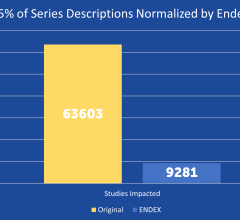
SPONSORED CONTENT — EnsightTM 2.0 is the newest version of Enlitic’s data standardization software framework. Ensight is ...
The U.S. Department of Health and Human Services (HHS) is extending the public comment period by 30 days for two proposed regulations aimed at promoting the interoperability of health information technology (health IT) and enabling patients to electronically access their health information. The new deadline for the submission of comments – June 3, 2019 – will allow additional time for the public to review the proposed regulations.
GE Healthcare has received 510(k) clearance from the U.S. Food and Drug Administration (FDA) of its Deep Learning Image Reconstruction engine on the new Revolution Apex computed tomography (CT) device. The engine has also been approved as an upgrade to GE’s Revolution CT system in the United States.
Commercial efforts to develop artificial intelligence (AI) for women’s health have tended toward smart algorithms that ...
University of California Los Angeles (UCLA) researchers have developed a new artificial intelligence (AI) system to help radiologists improve their ability to diagnose prostate cancer. The system, called FocalNet, helps identify and predict the aggressiveness of the disease by evaluating magnetic resonance imaging (MRI) scans, and it does so with nearly the same level of accuracy as experienced radiologists. In tests, FocalNet was 80.5 percent accurate in reading MRIs, while radiologists with at least 10 years of experience were 83.9 percent accurate.
In a keynote lecture at the Society of Breast Imaging (SBI)/American College of Radiology (ACR) 2019 Symposium, Diana ...
Peter Nakaji, M.D., FAANS, general practice neurosurgeon at Barrow Neurological Institute, presented new research on surgically targeted radiation therapy for previously irradiated intracranial neoplasms during the 2019 American Association of Neurological Surgeons (AANS) annual scientific meeting, April 13-17 in San Diego. Nakaji’s research was the winner of the Mahaley Clinical Research Award.


 April 24, 2019
April 24, 2019 


